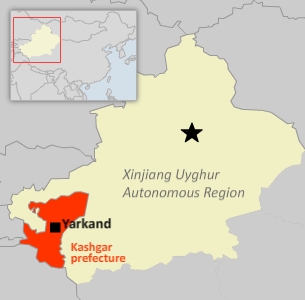China confiscates passports of Xinjiang people - Why is there tension between China and the Uighurs?
Chinese authorities have begun confiscating
passports from people in the western region of Xinjiang, which has seen regular
unrest. The move,
which the government says is aimed at combating "terrorism", has been
criticised by human rights groups.
Many Muslims in Xinjiang say they face widespread discrimination.
The Chinese government is eager to eradicate sporadic violence in the
province, which it blames on Islamist militants.
Uighurs, which makes up about 45% of Xinjiang's population, have often
complained about being refused documents allowing them to travel.
In June police in Xinjiang ordered residents to provide
DNA samples and other biological data when applying for travel
documents.
Under the new regulations all people in Xinjiang are required to hand in
their travel documents to police for "safekeeping".
The BBC's Stephen McDonell in Beijing says that all residents must now
apply for permission to leave the country before they can retrieve their
passports.
The World Uyghur Congress says that although
the new measures are ostensibly aimed at all residents, they will in effect
target the Uighur community.
Over the years China's authorities have attributed attacks to Uighur
militants, who they say are inspired or aided by foreign terror groups.
Uighur leaders have denied being behind the violence.
Uighurs and
Xinjiang
§ Uighurs are ethnically Turkic
Muslims
§ They make up about 45% of
Xinjiang's population; 40% are Han Chinese
§ China re-established control
in 1949 after crushing the short-lived state of East Turkestan
§ Since then, there has been
large-scale immigration of Han Chinese
§ Uighurs fear that their
traditional culture will be eroded


No comments:
Post a Comment